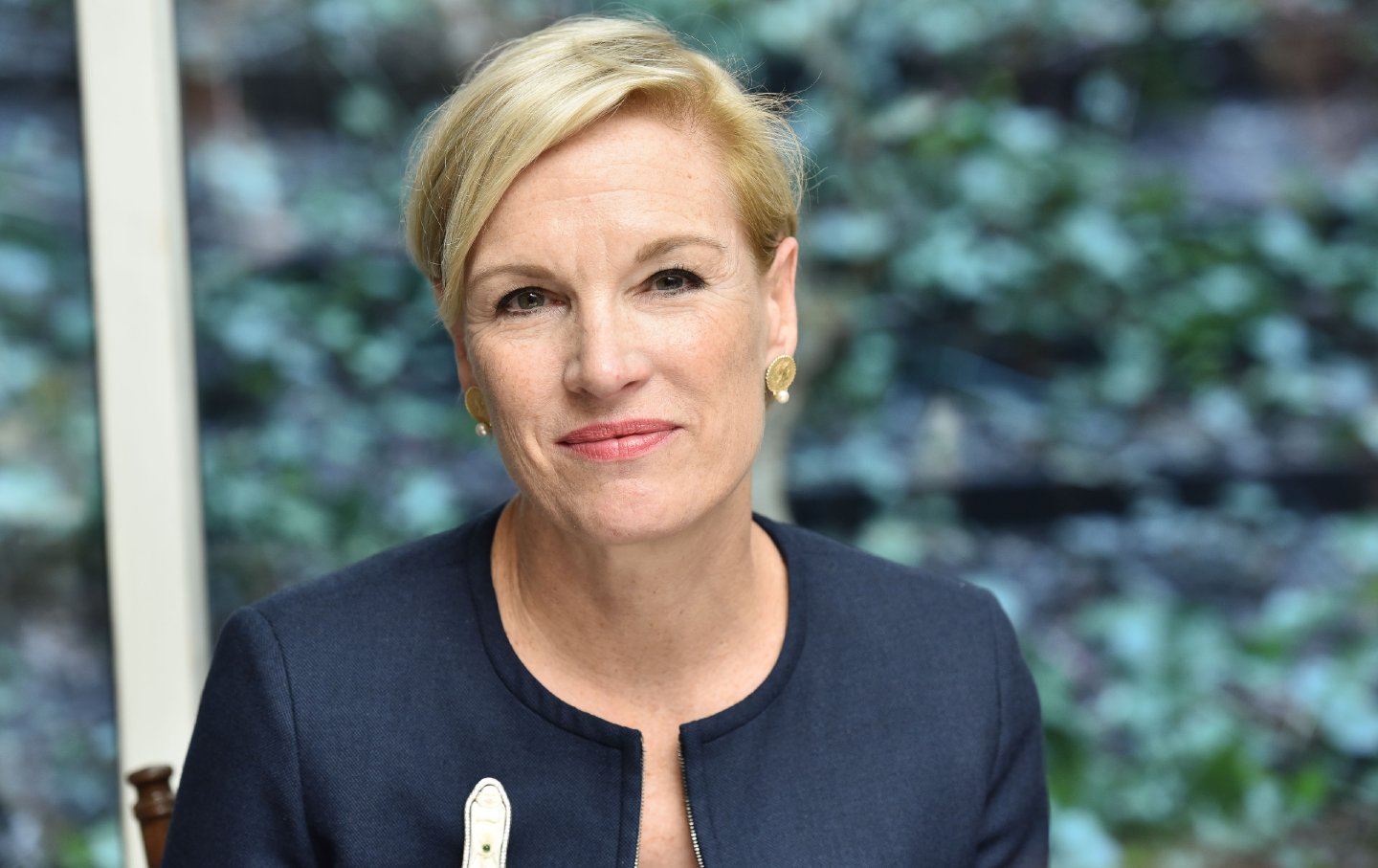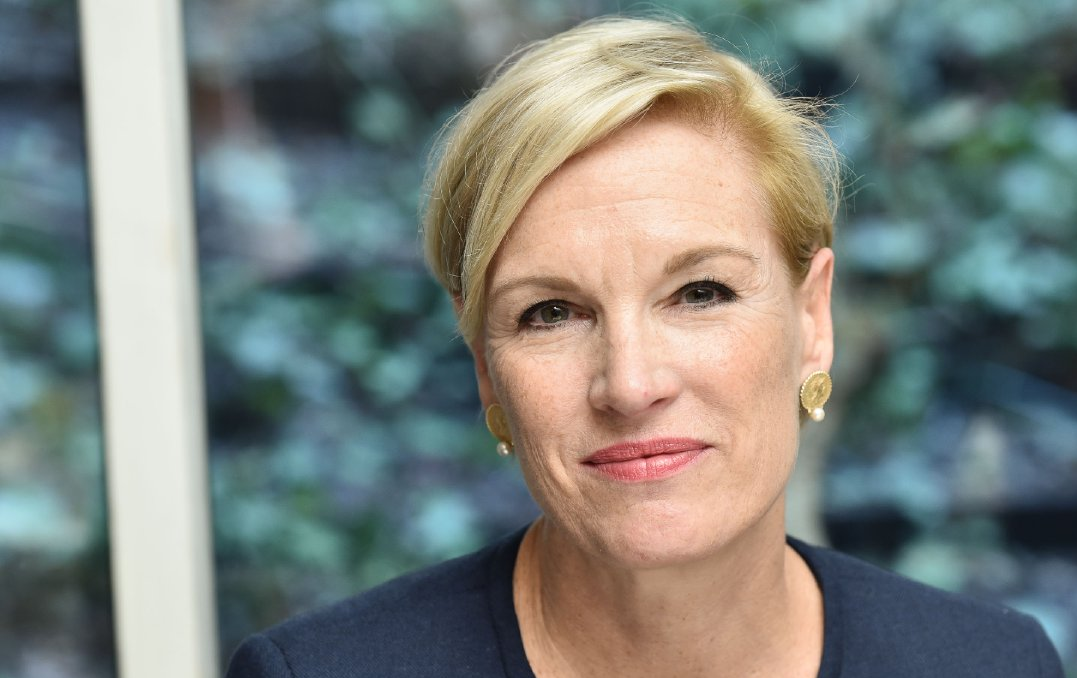Activism / January 20, 2025
The crusader for women’s and workers’ rights died Monday after a cruel illness. She inspires us to do the work ahead.
 Cecile Richards.
Cecile Richards.
(Jared Siskin / Patrick McMullan via Getty Images)
We all owe a huge debt of gratitude to Cecile Richards—for infinite reasons. Perhaps least: by passing just hours before Donald Trump’s inauguration, at the too-young age of 67, she made the day yet another reason for reverence and remembrance, not one of cruel orange spectacle. For those of us with faith in justice and kindness, today was already a hallowed day, the holiday honoring the birthday of Rev. Dr. Martin Luther King Jr., one of this country’s foremost beacons of progress when it comes to human rights. Now Cecile is forever associated with this day.
I’m not sure what I “believe” in the grand sense, but I believe Richards left us on Monday to remind us to carry on her work for women and workers, and to do our best to tune out the misogynist monster as we instead focus on helping his victims. Which could ultimately include most of us.
Richards was blown back by a diagnosis of glioblastoma—a very aggressive form of brain tumor—in the summer of 2023. Instead of withdrawing to focus on her health, the longtime head of Planned Parenthood founded a new organization, Abortion In America, to tell the stories of women who are suffering and even losing their lives in the wake of the Dobbs decision.
Kaitlyn Joshua, a Louisiana miscarriage survivor denied proper care because of that state’s abortion ban, told me this when I asked her about Richards last year:
“What’s it like working with Cecile Richards? It is a complete honor, and I oftentimes have to pinch myself because I can’t believe I get the privilege of being able to work in such close proximity with someone who is an abortion rights activist and pioneer in the movement.”
Joshua continued, and articulated what was so uncommon about Richards’s pioneering work:
“I’ve been completely blown away by her ability to understand this work through the lens of black maternal healthcare and adversities that people of color face every single day, as added barriers in trying to access abortion care.”
Frances Kissling, founder of Catholics for Choice, told me: “Cecile was an incredible woman. She led Planned Parenthood with wisdom; before that tenure, and after, she worked for democracy, women, and people in need.”
Yes she did.
***
Cecile Richards first made The Nation’s progressive honor roll in 2015. A longtime labor organizer—she ran the “Justice for Janitors” campaign—she became president of Planned Parenthood in 2006 and the most public face of reproductive health care. In 2015 alone, she stared down ill-informed congresspeople who insisted the organization was selling baby parts, and stood up when a gunman attacked a clinic in Colorado Springs and killed three people. “What happened in Colorado Springs broke our hearts—and it steeled our spines,” she said.
With that unbreakable spine, Richards went on to transform Planned Parenthood. It was a widely respected women’s care and also abortion provider, with a lobbying arm. Richards transformed it.
“When she started at Planned Parenthood it was a service provider with a fairly moribund political apparatus,” says Gina Glantz, Richards’s friend and longtime political and labor activist. “She was determined for it to become a force for women by establishing the power of the institution and its mission. Over the course of her tenure, women’s reproductive health and abortion, in particular, became hallmarks of not only a progressive agenda but an American agenda.”
When a right-wing activist took over the Susan G. Komen breast cancer organization, Glantz recalls, Richards “refused to turn it into a cat fight. She turned it into an educational device for expanding understanding of [Planned Parenthood Action Fund].” And she won.
Alexis McGill Johnson, the current leader of PPFA, recalls being mentored by Richards. “I’m sitting here because of her,” she told me. At Richards’ behest, she joined, and then chaired, the board. “I felt, how could I possibly step in as board chair? She gave me the confidence to do it. That will be one of her biggest legacies.”
***
Richards turned Planned Parenthood into a political powerhouse. Not that long a time ago, “nobody wanted our endorsement,” Johnson recalls.
“She fearlessly made political leaders understand the consequences of denying women’s rights and faced down the Republicans who brought her before their mean-spirited House committee determined to undermine her and PPFA’s reputation,” Glantz says. “It did just the opposite. Candidates, who in the past avoided the connection, sought approval.”
I personally watched that happen, in wonder.
Richards left Planned Parenthood in 2018, and quickly co-founded “Supermajority,” with domestic workers organizer Ai-jen Poo and Black Lives Matter leader Alicia Garza, to channel the energy of female voters and politicians who showed up in the 2018 midterms—the anti-Trump “blue wave.”
But the 2022 Supreme Court Dobbs decision, which eliminated the 50-year constitutional right to choose, drew her back to abortion activism. She started “Abortion in America” and gave her final months to that worthy project.
I last talked to Cecile in early December, for my Nation feature on how the women’s vote failed Kamala Harris. She told me this:
“Democrats have a problem making things clear. And we have to take some of it out of politics. That’s why we’re doing this project: These are not political stories, Kaitlyn’s and others, they’re human stories that are happening to a variety of people..
And I think unless we keep repeating what is happening as a result of these abortion bans, we’ll have women in half the country with no ability to do anything about it. Even if we’d won the [presidential] election, you had 22 states where women would have woken up in the same situation. We knew that, regardless of what the outcome was, there are women facing these difficult circumstances and we just can’t stop telling their stories.”
Richards added: “Resources are drying up after the election, even though the stories are as important as ever.”
Please change that, funders. And make the check out in her honor. On this day, of all days, I’d like to remember the words, spoken so often by Richards this past year, that family wanted us to recall as they informed the world of her passing this morning: “It’s not hard to imagine future generations one day asking: ‘When there was so much at stake for our country, what did you do?’ The only acceptable answer is: ‘Everything we could.’”

